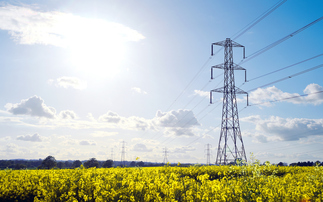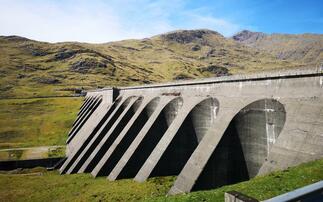Achieving net zero is crucial to the long-term success of our customers, our communities and our economy, writes NatWest Group chief executive Alison Rose
As we begin to emerge from the most challenging and disruptive period in recent memory, and as societies reopen and economies rebuild, leaders across the world are grappling with the same era-defining challenge; to ensure a more sustainable, resilient and greener path is forged.
The remarkable scale and success of the vaccination programmes hold the key to our recovery, but they also serve as powerful examples of what can be achieved.
The COP26 summit in Glasgow later this year, already a vital part of our journey to a greener economy, has been made all the more urgent. We can expect a range of new policies and commitments to emerge and achieving net zero will quite rightly be at the heart of these ambitions.
Banks such as NatWest have a significant role to play. Not only in getting our own houses in order but in helping our customers make the transition and, in so doing, supporting a green recovery. Which is why, last year, we committed to halving the climate impact of our financing activity by 2030 and why we intend to join the growing coalition of organisations in the Race to Zero, championed by the UK COP26 presidency and others.
This is not just the right thing to do; it is fundamental to delivering a sustainable future for any business. By building long-term relationships with our customers and supporting them at every stage of their lives, we will build long-term value in our bank and drive sustainable returns for shareholders.
The debate about the role of finance in tackling climate change is often concentrated on shifting investment from 'bad' companies to 'good' ones, typically moving money out of fossil fuels and into renewables.
And rightly so, up to a point. Last year, NatWest provided £12bn of funding and financing for climate and sustainable finance, including for projects such as Dogger Bank, the world's largest offshore windfarm. We reduced our exposure to oil and gas by almost sixteen percent, having announced that we will stop lending to major oil and gas producers if they don't have Paris-aligned plans in place by the end of 2021. And we are partnering with innovative companies such as Octopus Energy, which will make it easier for customers to own an electric car.
But the reality is more complicated. If banks simply stopped financing businesses and industries that have the biggest climate impact, the economy couldn't react quickly enough.
There are no quick-fix solutions. We are focused on working alongside our customers - from individuals to the largest corporations - to help put in place credible plans that will allow them to thrive as we transition to a low carbon economy.
But even measuring your own climate impact is much easier said than done. This is as true for banks as it is for anyone else.
We achieved net zero for our own operations last year and are aiming to be net positive by 2025. But quantifying the impact of our £800bn balance sheet, with lending that touches every part of the economy, is far more of a challenge. This is a major priority and we have now estimated emissions across four key sectors that collectively account for almost half of our total lending and investment balances - oil and gas extraction, automotive manufacturing and agriculture sectors as well as residential mortgage properties. But there is still more work to be done.
Many of our business customers tell us that tackling carbon emissions is the hardest problem to find external support for. As a result, we have announced that we are collaborating with Microsoft to help companies to measure their own carbon footprint and take steps to reduce it.
And for our personal customers, we have launched a pilot with the fintech app, CoGo, allowing them track their carbon footprint in real time through their spending transactions.
Those who act now can benefit from savings in energy bills and reduced running costs for their cars. They can increase the value of their homes and secure the long-term viability of their businesses, making them more attractive for both investors and consumers.
But meaningful progress requires a collective will and focused action from governments, regulators, businesses and individuals across the world. This is more than an opportunity; it is a necessity.
Achieving net zero is crucial to the long-term success of our customers, our communities and our economy. And if they succeed, so will we.
Alison Rose is the chief executive of NatWest Group, a Principle Partner of COP26.
This article is sponsored by NatWest Group.






